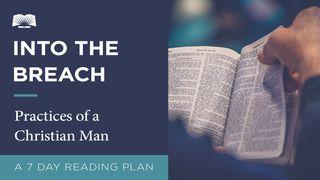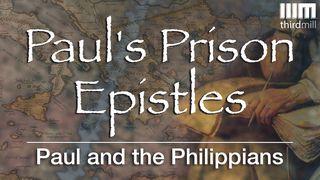Plan info
The Apostles’ Creed: The ChurchSample

Believers and Unbelievers: 2 Corinthians 13:5
Remember that in the Old and New Testaments, the church of God was never perfect. In the Old Testament, some ancient Israelites were faithful to God and received God’s blessings. But many others rebelled against God in unbelief and fell under His divine curses. We see this throughout the Old Testament, but it is perhaps most clear in the summaries of God’s covenant blessings and curses, like the ones we find in Leviticus 26 and Deuteronomy 27–30.
And the same kind of thing is true of the assembly of the followers of Jesus, the New Testament church. There are always unbelievers mixed among the believers in our churches. For instance, Judas was unfaithful among the apostles. We are specifically told this in John 6:70-71, and we also see it in his betrayal of Christ. The mixed nature of the church is also evident in the letters to the churches in Revelation 2–3. These chapters of Revelation expect true believers in the church to overcome. But they also warn that those who do not overcome will demonstrate their unfaithful hearts. And much of the letter of 1 John is dedicated to distinguishing between true and false believers in the church. Beyond this, many other passages warn of false teachers in the church, or encourage those who profess belief to persevere until the end in order to prove their faith.
In 2 Corinthians 13:5, Paul also recognized this truth, and encouraged people to reflect on it. Consider what he wrote there:
> Examine yourselves to see whether you are in the faith; test yourselves. Do you not realize that Christ Jesus is in you — unless, of course, you fail the test? (2 Corinthians 13:5)
Paul wanted everyone to recognize that things like church membership, and baptism, and a credible profession of faith are not sure signs of saving faith in Jesus Christ. People who have never truly come to Christ in faith also do these things. So, Paul encouraged people in the church to examine themselves, to make sure that they were truly trusting in Christ for salvation.
Of course, as human beings we can’t know the condition of another person’s heart. We can only see their actions and hear their words. So, it’s often impossible for us to tell who the true believers are. But the knowledge that there may be unbelievers in our congregations should still affect the way we view ourselves and others in the church. We should remember to keep teaching and preaching the gospel to the whole church in order to save those who have not yet come to faith — even though we might not know who they are. We should be receptive to those in the church that are seeking God, not discouraging them from coming to church even though they may not yet have trusted in Christ yet. And we should be inclined to be patient with others, knowing that there is a wide diversity in faith and maturity, even among people who have been in the church for a long time.
Scripture
About this Plan

This reading plan looks at the divine sanction of the church, and at the facts that the church is holy, catholic or universal, and a communion.









